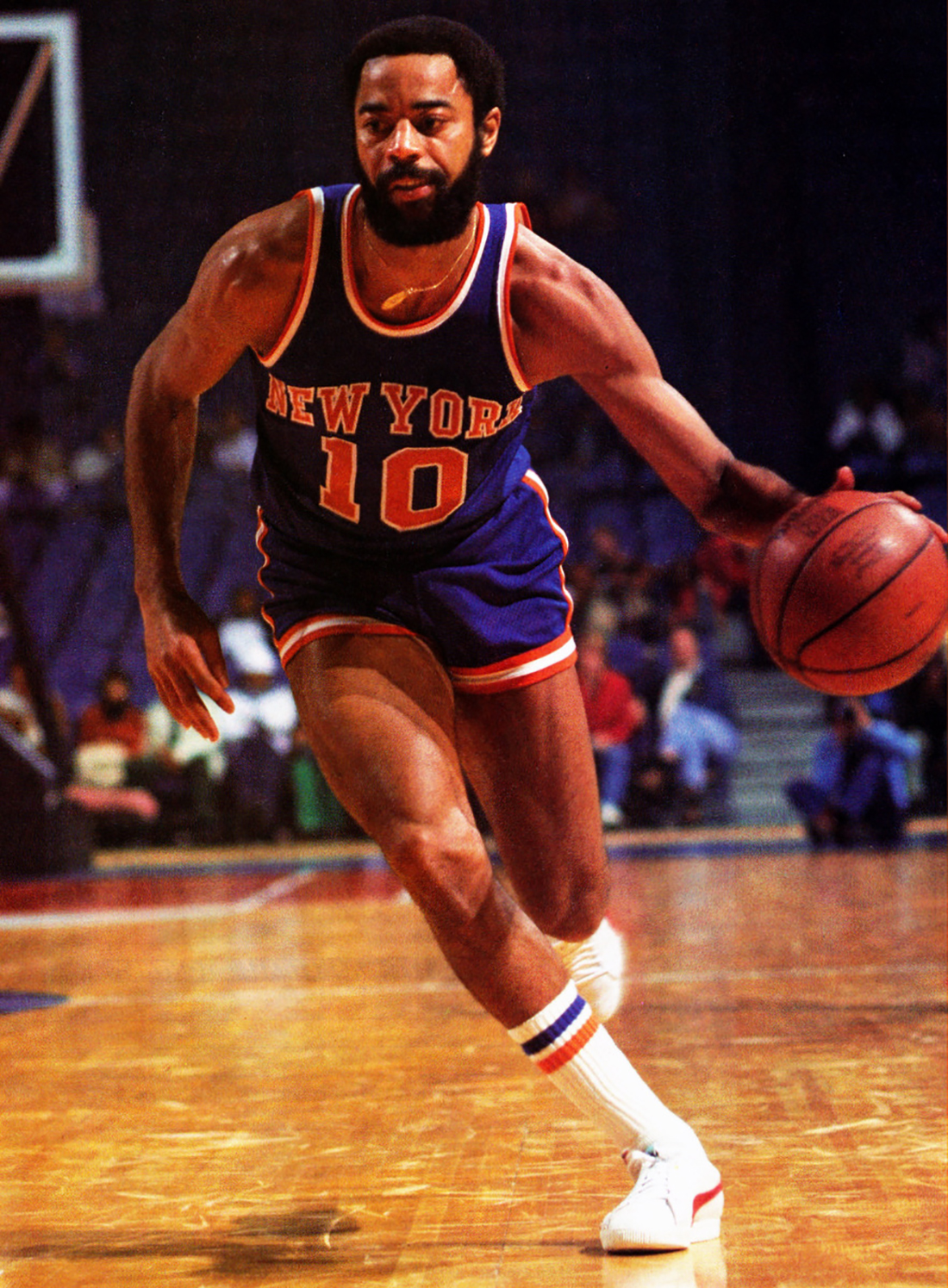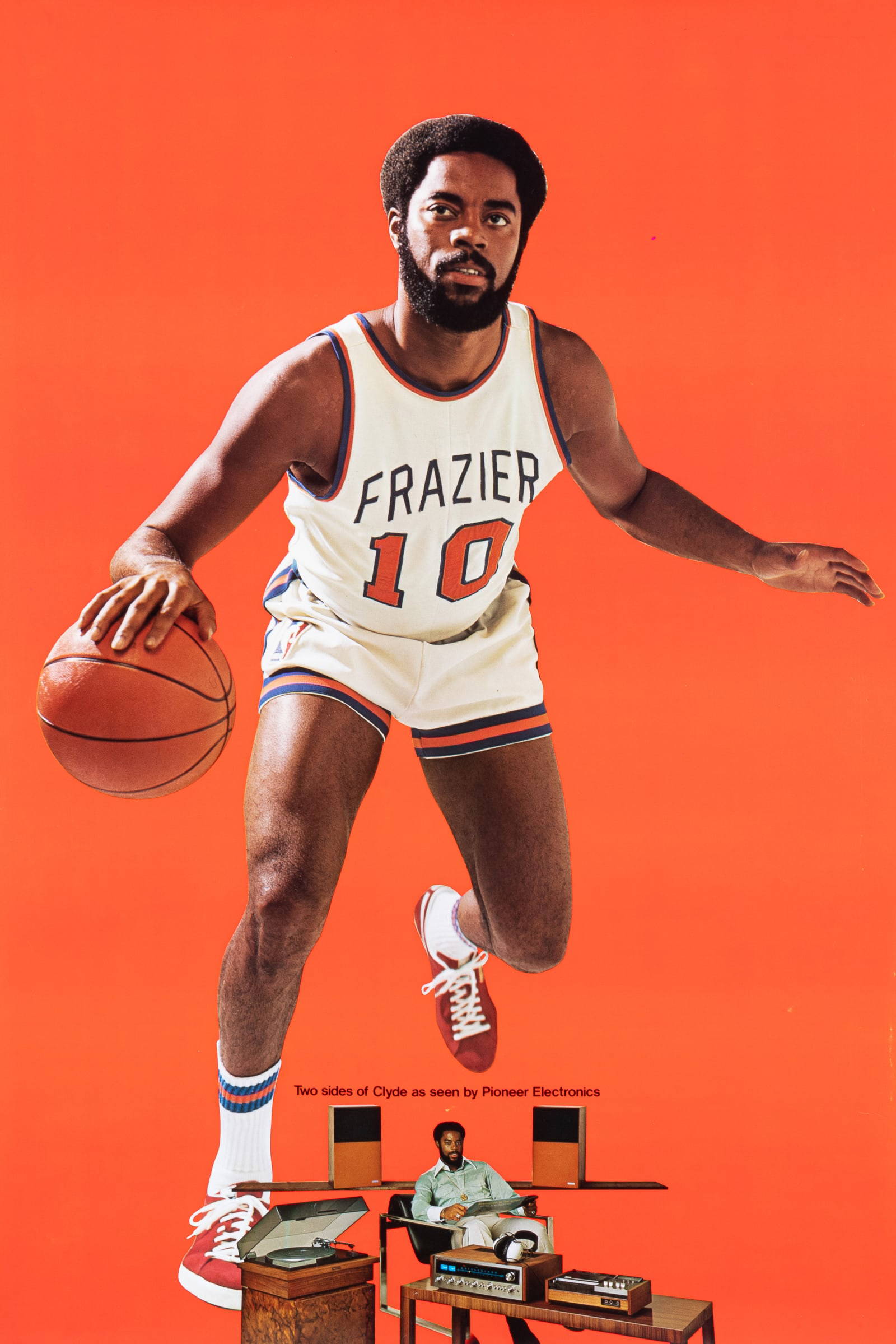Could a single individual truly encapsulate the spirit of an entire city, a movement, a golden era of sport and style? **Walt Clyde Frazier, the very embodiment of cool, remains a living legend, a vibrant thread woven into the rich tapestry of New York City's identity.**
His impact resonates far beyond the basketball court, influencing fashion, popular culture, and the very essence of what it means to be a New Yorker. Frazier's journey, from a young man in Atlanta to an NBA icon, is a testament to talent, hard work, and an unwavering commitment to excellence. His name is synonymous with clutch performances, dazzling plays, and a style that continues to inspire generations.
| Category | Details |
|---|---|
| Full Name | Walter Walt Frazier Jr. |
| Nickname | Clyde |
| Date of Birth | March 29, 1945 |
| Place of Birth | Atlanta, Georgia |
| High School | David Tobias Howard High School (Atlanta) |
| College | Southern Illinois University |
| NBA Draft | 1967, 5th overall by the New York Knicks |
| NBA Teams | New York Knicks (1967-1977), Cleveland Cavaliers (1977-1979) |
| Position | Point Guard |
| Championships | 2 (1970, 1973) - New York Knicks |
| All-Star Selections | 7 |
| All-NBA Team Selections | 4 (1st Team: 1, 2nd Team: 3) |
| All-Defensive Team Selections | 7 (1st Team) |
| Hall of Fame | Naismith Memorial Basketball Hall of Fame (Inducted 1987) |
| Notable Achievements | NBA Finals MVP (1970), MVP of the first ABA-NBA All-Star Game (May 1971) |
| Post-Playing Career | NBA Analyst and Broadcaster |
| Shoe Deal | Puma (signature Clyde sneakers) |
| Reference | Britannica - Walt Frazier |
The date, March 9th – although the year is not mentioned here for better storytelling – marked the moment when the world first truly witnessed the emergence of Walt Frazier. The newspapers of that era, while surely filled with stories of the day's news, were also featuring the image of a player for the Southern Illinois, the seeds of what would soon grow into an NBA legend.
His time at Southern Illinois University served as a crucial stepping stone, where he honed his skills and demonstrated the potential that would soon make him a top draft pick. Before he became a New York icon, he was a star at SIU, leading the Salukis to national prominence. His performance on the court was matched only by his developing understanding of the game's intricacies, foreshadowing the brilliant strategist he would become.
Drafted by the Knicks in 1967, Frazier quickly became the engine of a team that would define an era of New York basketball. Playing alongside other future Hall of Famers, he orchestrated a style of play that was both elegant and effective. He wasn't just a scorer; he was a playmaker, a defender, a floor general who controlled the tempo of the game with remarkable poise and intelligence. The seven-time All-Star was a defensive mastermind. His steals, deflections, and on-ball pressure frustrated opponents, contributing significantly to the Knicks' success.
The pinnacle of his career came in 1970, when he delivered one of the most iconic performances in NBA Finals history. In Game 7 against the Los Angeles Lakers, Frazier, despite being injured, seized control, leading the Knicks to victory. He recorded a then-record 36 points, 19 assists, and 7 rebounds. His ability to perform under pressure, to make the right play at the crucial moment, cemented his status as a true champion. That performance against the Lakers was not just a showcase of his talents; it was a demonstration of his will and his unshakeable confidence.
His second championship with the Knicks in 1973 further solidified his legacy. He was instrumental in the Knicks' hard-fought victory against the Lakers, proving that the 1970 championship wasn't just a fluke. He led his team with an unmatched combination of skill and composure.
Beyond the championships and accolades, Frazier’s impact on the game and the city goes beyond the court. He was known for his flashy style and sartorial elegance, becoming a trendsetter. His signature Puma Clyde sneakers, named in his honor, were as iconic as his play on the court. He was a walking advertisement for cool, someone who understood the power of personal branding long before it became commonplace.
Frazier's post-playing career as a broadcaster has been as celebrated as his time on the court. His distinctive voice, his insightful analysis, and his unmistakable flair have made him a beloved figure in the world of sports broadcasting. He brings a unique perspective, honed by years of playing at the highest level, and continues to share his vast knowledge of the game with fans. The possibility of him calling his final playoff game, as reported on April 29, 2025, would mark the end of an era. However, his contributions to the sport and the city of New York will forever be remembered.
Walt Frazier's story is not just about basketball; it's a narrative of dedication, style, and unwavering commitment to excellence. He remains a testament to the power of hard work, the importance of individual expression, and the enduring allure of a true icon. His legacy continues to inspire, and his influence on the game and the culture surrounding it will be felt for generations to come. He is, and always will be, Clyde, a name synonymous with greatness.



